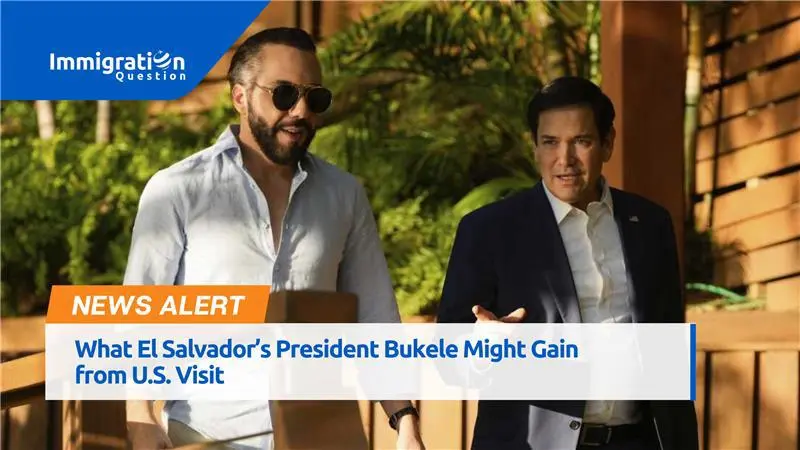El Salvador’s President Bukele is visiting Washington as a key player in Trump’s mass deportation drive. With over 200 deportees already detained in El Salvador’s gang prison, both leaders aim to expand their immigration partnership. The visit could also impact U.S. tariffs and legal controversies surrounding deportation cases.
Strategic Visit Amid Intensified Deportation Efforts
El Salvador’s President Nayib Bukele is visiting the White House as the Central American country becomes increasingly pivotal to President Donald Trump’s immigration enforcement agenda. Since March, Bukele’s government has accepted over 200 Venezuelan deportees from the U.S., many of whom the Trump administration accuses of gang involvement—allegations that have not been publicly substantiated with evidence or names.
The deportees have been placed in a high-security prison near San Salvador, built initially to detain El Salvador’s most dangerous street gang members.
A Pivotal Role in Deportation Operations
Bukele’s cooperation has made him a worthwhile partner to the Trump administration. His hardline crackdown on street gangs—marked by the detention of over 84,000 individuals—has earned him both local popularity and Washington favor. The U.S. is funding the incarceration of Venezuelan deportees in El Salvador, with some reports of an agreement to pay approximately $6 million for one year of imprisonment.
The U.S. Supreme Court recently cleared the way for the administration to proceed with deportations under the Alien Enemies Act, a centuries-old war-time statute from the 18th century. Despite the ruling that deportees are entitled to hearings in court, the administration has proceeded swiftly, with additional deportations taking place over the weekend.
Legal Tensions and Human Rights Concerns
Among the more contentious cases is that of Kilmar Abrego Garcia, a Salvadoran national and Maryland resident who was deported in defiance of a court order protecting him from removal due to fears of gang persecution. While the Supreme Court has ordered the administration to “facilitate” his return, U.S. officials have been vague about what, if anything, is being done. Court documents show Garcia remains in El Salvador, with no concrete case development.
Although Trump has shown a readiness to comply with the Supreme Court’s ruling, there are doubts about the administration’s grasp of its obligations, particularly concerning the distinction between facilitating and effectuating returns.
Expanding the Deportations’ Scope
The Trump administration’s ambitions are not limited to foreigners. The president has also expressed interest in potentially deporting natural-born U.S. citizens who have committed violent crimes to countries like El Salvador. Legal experts, however, question the legality of such an action, especially absent dual nationality or other international agreements.
Bukele, for his part, is open to such offers, having seemingly cast the return of Salvadoran gang leaders as a matter of national pride. His ambassador has been explicit that justice for these individuals is a priority, which could portend a long-term partnership in immigration enforcement between the countries.
Looking Ahead – What El Salvador’s President Bukele Might Gain from U.S. Visit
While Bukele is visiting, the two presidents are expected to continue their cooperation on prison deals and deportations. People in El Salvador demand that the talks yield tangible benefits for Salvadorans in the U.S. and back home and not be merely symbolic.
As Bukele seeks relief from U.S. tariffs and Trump demands expanded deportation powers, the outcome of this meeting stands to shape the future of U.S.-Central American relations and immigration enforcement policy for years to come.
To stay updated and informed, watch our news section or drop your immigration questions on immigrationquestion.com and get responses from professional attorneys.










